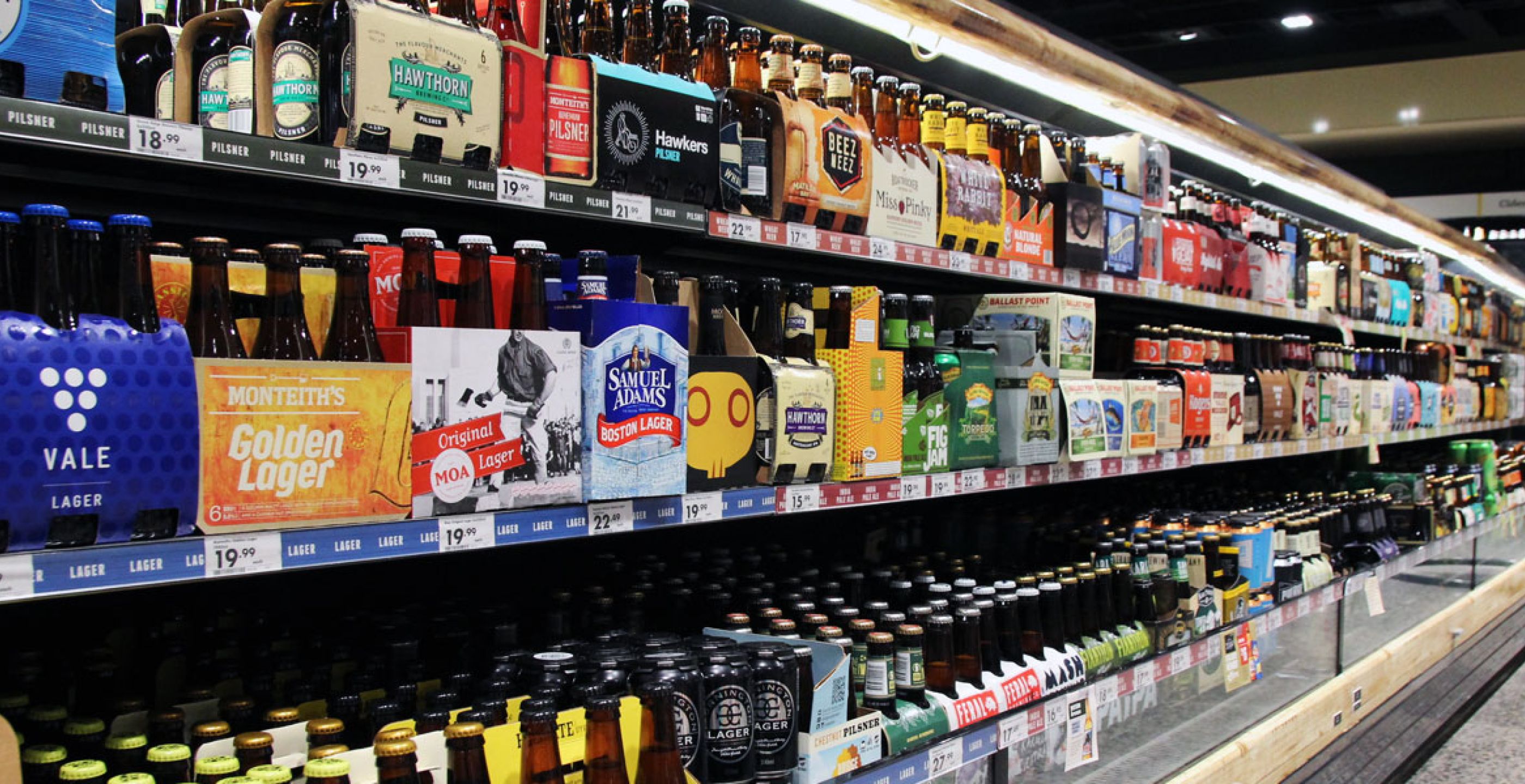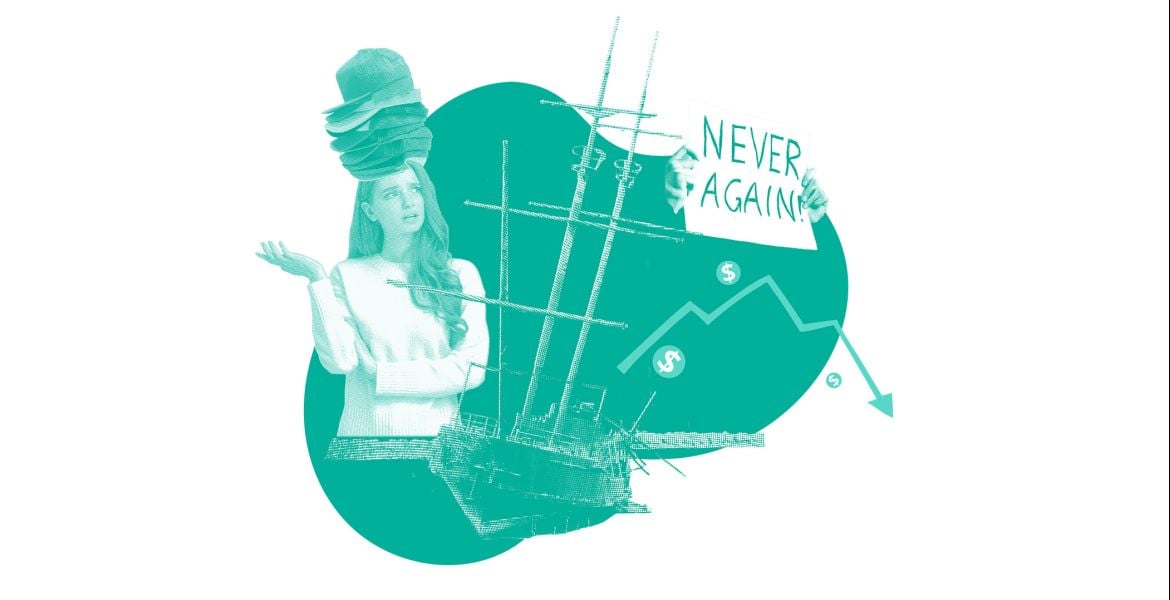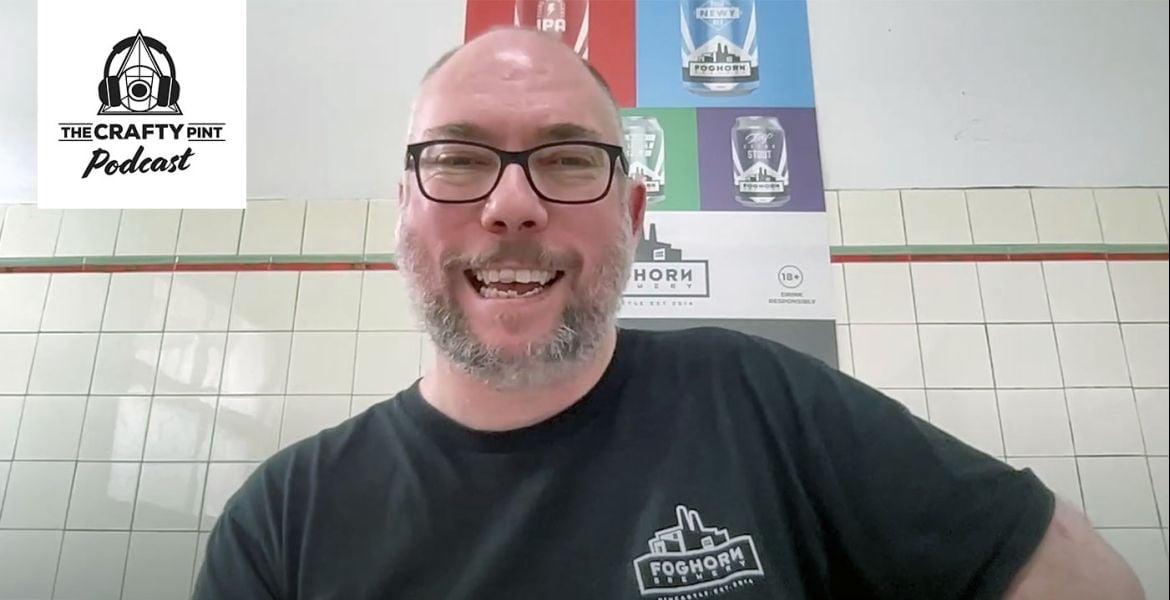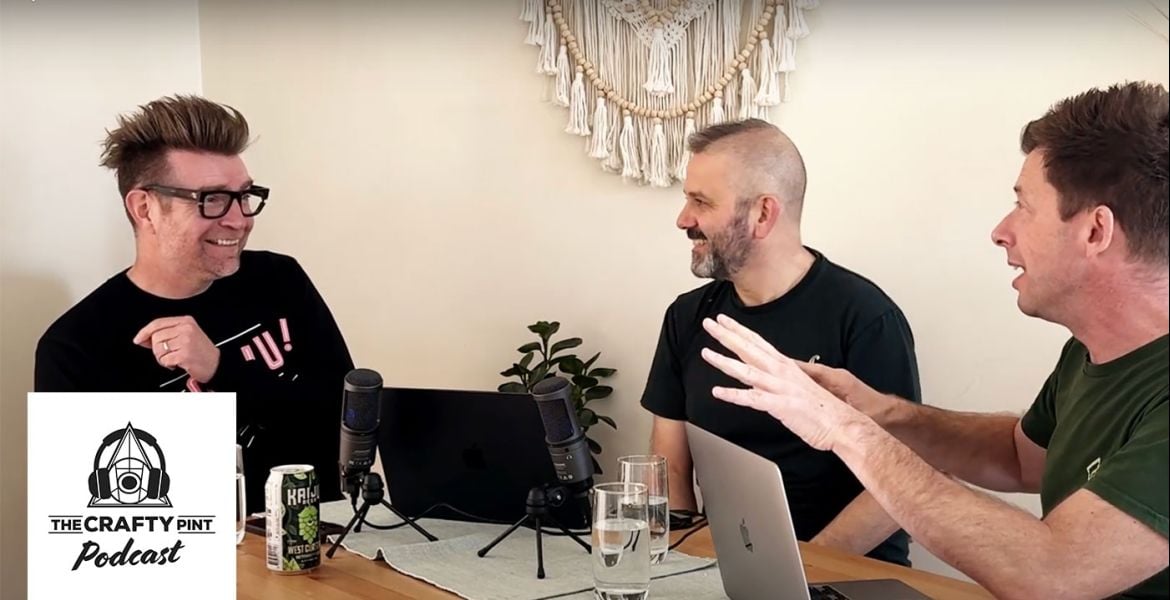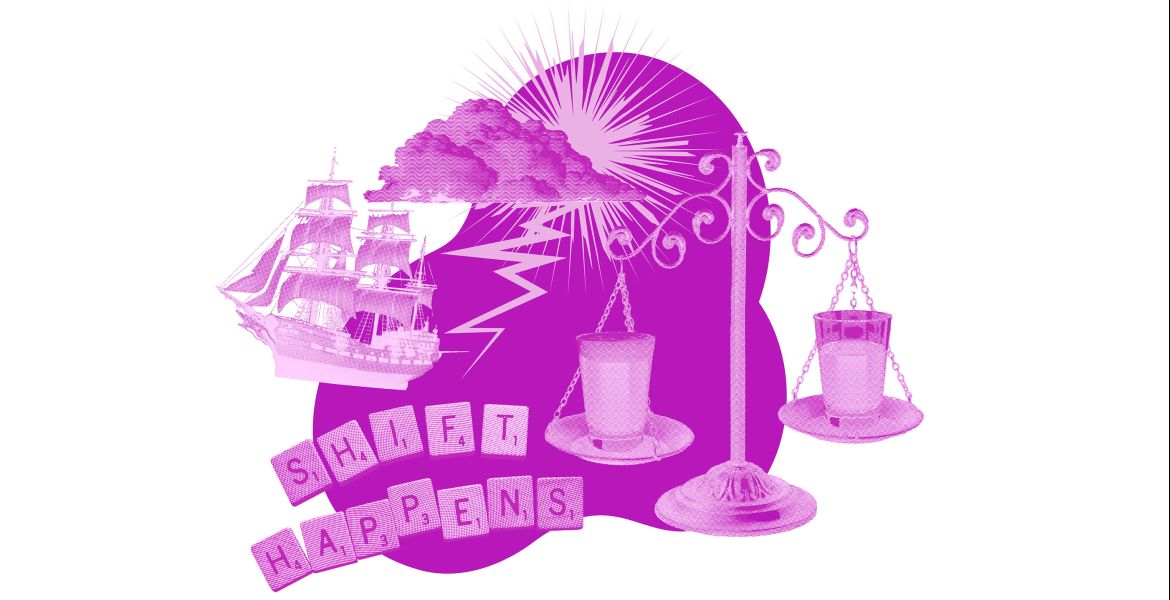Back in May, on the day the Independent Brewers Association (IBA) was launching its seal, we returned to the topic of ownership, one we'd first addressed in depth in late 2015. Between those articles, several other Australian brewing companies had been acquired by bigger operations: 4 Pines and Pirate Life by AB InBev; Vale Brewing by the Bickford's Group; Feral by Coca-Cola Amatil; Hawthorn Brewing by Dixon Hospitality.
The sales and what they mean for the local beer world, whether you're a brewer, retailer or consumer, have fuelled even more discussion, while the uptake of the independence seal by dozens of brewing companies large and small is an indication of the desire among many small Australian businesses to define themselves, at least in part, by their ownership.
Our last article featured the views of people operating predominantly in the independent field. We had attempted to get input from the owners of a couple of the businesses involved in some of the most high profile sales, but they declined to take part. So, following its publication, we picked out the key points raised by the five contributors and presented them – where appropriate – to Mountain Goat, Hawthorn, 4 Pines, Pirate Life, Bickford's and Feral.
Seven weeks on, at time of writing, we've been able to get full responses from three of the six plus a "No comment" from Mountain Goat, who wish to direct people to their past comments regarding the sale. Those that have responded in full are in rather different situations – as with seemingly everything in the beer world today, there's less black and white, more shades (maybe even dimensions) of grey – so not all questions were relevant to all of them. As such, we're running their responses separately.
We've also created a new infographic, which you can find here. And we'll be following that with the latest from the States, where an independence seal has been in use since last year.
It's a fascinating time, one in which the first signs are appearing that tensions may be firing up as they have done in the US in recent years, and in which "indie beer" is becoming a weapon to wield in place of "craft". Yet, even here, there are questions already about how clear cut independence is when there's big money flooding in to small breweries from outside large beer and beverage companies.
So, as the IBA welcomes guests and attendees to Sydney for BrewCon and its rebranded Indies awards night – one that former major trophy winners such as Little Creatures, Pirate Life and 4 Pines can no longer enter – what do those involved in brand acquisitions in recent years have to say?
Jaron Mitchell – 4 Pines (AB InBev)
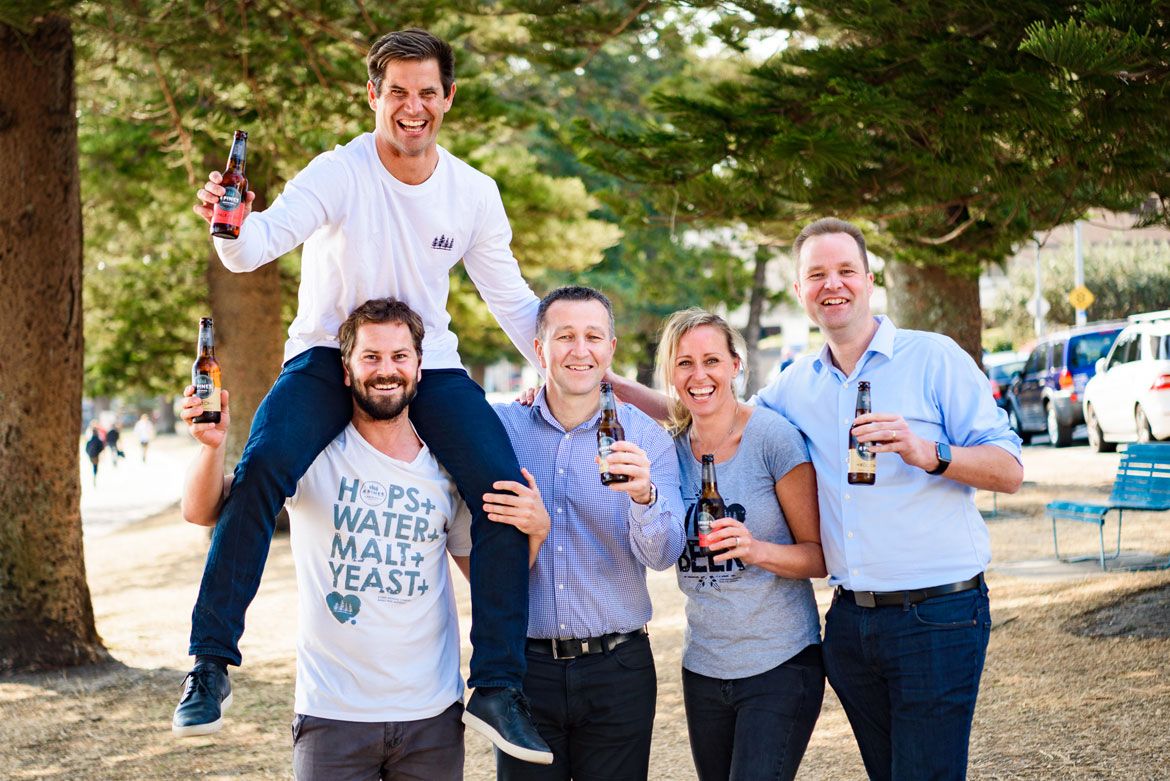
4 Pines was the first of four acquisitions that came in quick succession in 2017, selling to AB InBev in September. It's a partnership that has already seen the Manly operation, which turned ten this month, secure its own bar at the SCG. We sought the views of co-founder Jaron Mitchell (pictured above on his brother's shoulders at the time the sale to AB InBev was announced).
The broader picture being painted at this year's Craft Brewers Conference in the US was one of good vs evil, with you and your owners categorised as evil. How do you feel about this?
JARON MITCHELL: It is the [US Brewer's Association's] stance that they are completely entitled to and I'm certainly not losing sleep thinking about it; however, naturally, I don’t concur and actually view it as a pretty narrow way to look at the world.
Whether a company or its owners/employees are good or evil isn’t defined by its ownership structure. I certainly know of a lot of small businesses (in and out of the brewing industry) that behave both in a “good” or an “evil” fashion. As I do large ones. Every company, be it a one man band or a multinational, is simply a collection of people. Should good vs evil not be defined by how the humans that make up the company behave and how they treat others they deal with, rather than the number of people that work for the business?
The day 4 Pines announced it had been bought by ABI, [we discussed how it] would take at least two to three years before we can all look back and determine whether this was a “good” move with a real fact base. We will then know whether the new ownership not only continued the “good”, but actually allowed the “good” parts of the business to blossom and possibly become great. We are only eight months in, so I’m not going to get overly excited quite yet, but so far we are better than on track relative to what we and ABI promised each other in terms of setting up 4 Pines into really “good” shape for the future.
No doubt we’ll keep chatting over time how this is going – so that if we do in fact become evil you can point and say: “Ha! Told you so!”
Do you believe your ability to innovate will be reduced over time now you are part of a far larger entity?
JM: No. In fact, we are innovating more than ever and can’t see any reason for this innovation growth not to continue. It aligns perfectly to what ABI are trying to do globally with the small businesses they have acquired, directly in beer and those businesses that sit adjacent to beer.
Having worked hard to build a successful Australian business, what are your thoughts on profits from sales of your beers being diverted offshore?
In the context of what is better for Australia or the local ecosystem the business plays in, it’s an equation as to what has the greater knock-on effect out of profits and investment. PROFITS retained locally, then reinvested or paid as dividends then spent back into the economy, versus raw INVESTMENT in the local economy, creating a multiplier effect of jobs and other localised economic benefits.
Usually the investment side wins out. It’s why governments worldwide will do whatever they can in the way of grants and incentives to get successful global businesses to set up shop in their locally economy. They have proven they know what to do with cash and have good governance and discipline to avoid them having a brain fart and embarking on a Charlie Sheen style cocaine-induced weekend – something that's far more likely to happen via private individuals receiving big fat profits.
For us, the decision was pretty easy. Our profits weren’t that big in the first place. AB InBev committed tons of investment into 4 Pines over the upcoming years. To put it into perspective, already the net sum of investment from ABI into 4 Pines, and thus into the Australian economy, is greater than our ten year sum of total investment.
Sure, if this investment pays off, ABI will have created a synergistic profit pool, part of which will eventually finds its way overseas. But, before any of this is offshored, it means a substantially bigger business gets to pass through substantially more local hands, benefiting more Australians than ever before.
Again, this is the set of circumstances for us and it will be a horses for courses situation for others in terms of what route to take, depending on several factors.
History never repeats but it rhymes; do you think the acquisition of small breweries by a handful of larger businesses could see the country return to a situation similar to that before the current craft beer revolution?
JM: This question is musing about how the future plays out, so it’s nothing more than a hypothesis but, in my opinion, it has two parts:
- Will we return to a world with only homogenised lagers of many different brands?
- Will we return to a world with few brewing companies and where many independents go out of business?
In terms of the first question, I don’t think we will ever return to a situation we saw before: limited brands essentially offering up a bunch of largely generic lagers that most couldn’t distinguish in a blind taste.
Why? Looking beyond our industry, worldwide, two things are happening before our eyes at an unprecedented rate:
- People are looking for specified personalisation more than ever before – hence brand and product fragmentation, which, for the last 50 or so years, has largely been filled by many tiny scale players as, for the most part, big legacy companies have been too slow or not interested in filling this void.
- The ability to simultaneously scale, garner efficiency and create diverse product lines is at an all-time high. This is now seen in the way large scale producers are able to personalise products better than ever, for example Amazon.
Ultimately, the consumer will decide the fate of the product selection available and the trajectory is towards exponentially more choice. Who provides this to the consumer is the next big question.
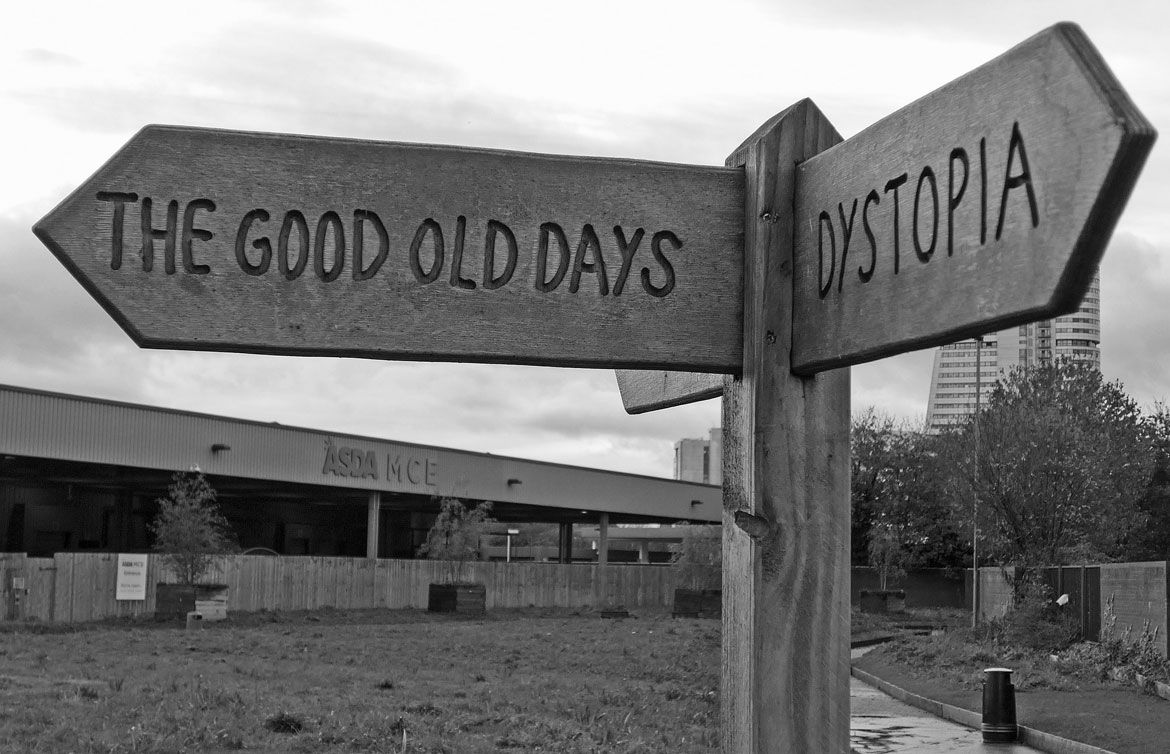
As for question two, the brewing industry has concertinaed between many little breweries (for example, there were more breweries per capita in 1880 than today) and a few big ones, back out to many little breweries. However, what does the future hold?
Without wanting to sound too dystopian, one day soon, because you have already given all of your data, personal information and therefore behavioural diagnostics and consumption patterns away to Big Data, a giant algorithm in the sky will predict what you want for breakfast, lunch and dinner two weeks in advance of when your brain tells you, Amazon like companies and their competitors will already have your personalised order (including what beers you want) filled and delivered to your door, or a car will rock up without you having to order it, taking you to a venue you don’t even know exists, but definitely would like to go to, without you having to handle any money or even talk to anyone.
We might have ten or 20 mega companies handling the entire supply chain to achieve all of this in all of our lives – but the consumer needn’t worry about that. They’ll be too busy uploading baby photos #cute, sunsets #perfectday, their latest holiday #blessed, the extreme pursuit they are doing #winning and the latest thing they are about to eat #nomnom – constantly looking at their device to see how many likes they have got, feeling ever more validated, continuously giving up ever more data, keeping the whole system going. They will just be happy they can buy and do a larger range of things than ever before, because the more likes they get, the more the modern day global tribe is accepting them, the less vulnerable they are to a threat outside of the tribe and therefore they can feel good inside.
As this consumer validation phenomenon starts to infest itself through the brewing industry in the next few years, as poorly capitalised small businesses, then poorly skilled, then poorly scaled businesses go bust, absolutely the finger will be pointed at the bigger players to begin with. But I believe this will be the result of something much more tectonic and beyond the brewing industry. It will be ultimately be driven by consumers' thirst to do more things than ever, with relatively finite resources to do so – driven by the sole quest to be part of the tribe.
So, you and me and everyone currently looking at Facebook and Instagram and giving up our data almost every minute of every day, will be the ultimate drivers of this in the beer industry, as well as just about every industry on the planet. The big and small and corporate and independent and high net worth owned brewers will merely be the agents in this giant global spectacle.
What do you say to the suggestion the brewery you helped build is now "no different to brands like Asahi, Peroni, Victoria Bitter, Corona, Mount Franklin or Coca-Cola"?
JM: If I was to try to interpret the above question in the context of independent ownership, my guess would be that it is suggesting if you are independently owned you are a “real” company with a soul and if you are owned by a parent company you are “just” a synthetic brand with no soul. Per the previous “good vs evil” question, whether or not this actually is the case is up to the people who run the company.
In any industry, for someone to suggest their brand and business is of a higher order, more superior or had a greater purpose, due exclusively to its legal incorporation and who has their hands on the share certificates, seems a bit short-sighted and borderline conceited. The ultimate owner of every company is a person or group of people. Behaviour of all of these people and how their management teams are empowered to behave is the ultimate test to what has a good soul or not.
Any company structure, with any tapestry of ownership, can bring about the same dick behaviour, impacting the people they deal with sub-optimally, delivering the same shitty products – as much as they can do the reverse and do everything exceptionally. Despite being legally incorporated in a myriad of ways, all businesses are made up of people and those people create cultures that will determine how their behaviours, relationships and products ultimately look.
Are you confident you will be able to control the future direction of your business/brand?
JM: Yes. Very confident. More than ever, actually. Again, that’s what we promised each other on the way in and, eight months in, it’s looking better than we could have imagined. We can do more things all at once now with precise confidence, something we always has to weigh up in the past.
Should independent brewery owners steer clear of claiming they'll never sell? Doesn't everyone have a price?
JM: Not necessarily but it depends on the owners and their intentions. For example, we used to answer along the lines of: "We don’t plan to, but who knows what is around the corner." But others may 100 percent write this off.
In saying this, I’d say at least half of the breweries in Australia have already sold or issued shares to wealthy individuals or P/E return on investment kind of guys, so not many can honestly actually claim this as a start point.
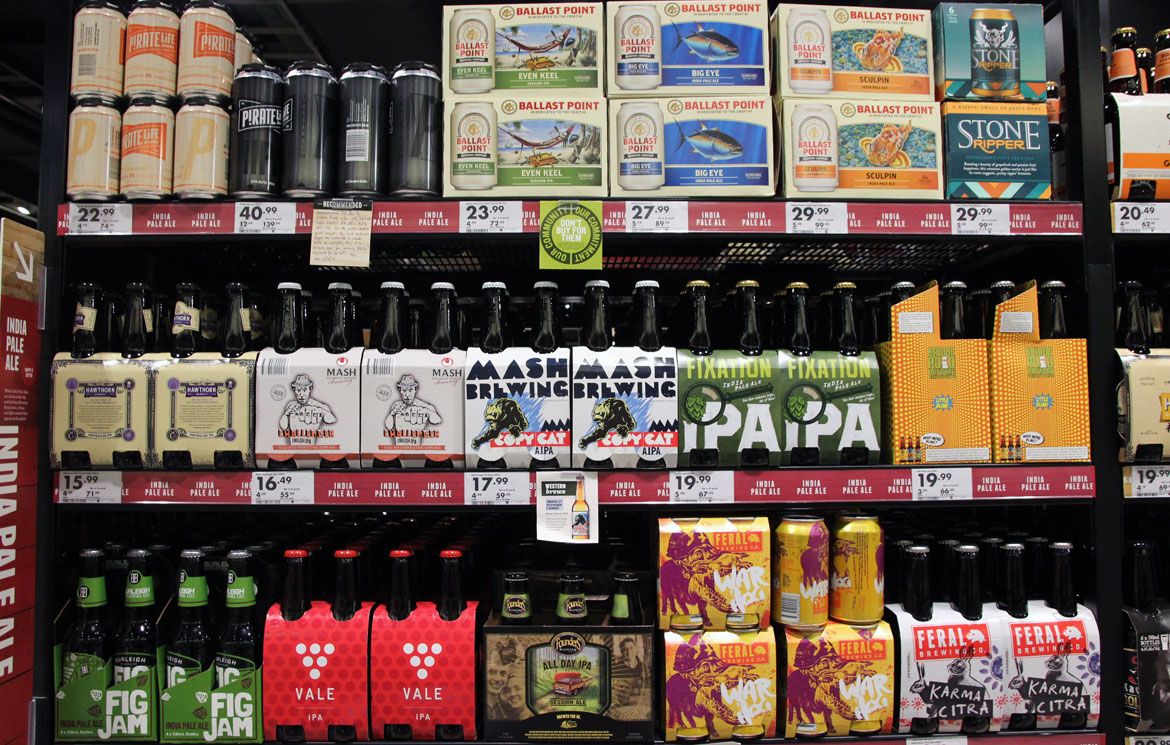
Many of your independent peers claim your acquisition by a major brewing company makes it easier for them to continue to block market access. Do you agree?
JM: It certainly makes the major brewing companies more competitive, particularly in the craft beer space.
Should ultimate ownership of a beer/brand be made clear on all packaging/labels?
JM: If this was a catch all, it would actually be impractical as it would require the entire shareholder register for many breweries to be listed on the label. Then if, for example, a drinker didn’t like the way Mr XYZ made millions off some unscrupulous business to fund their entry into the beer industry, they could make an informed choice what to and not to support.
If this question is specifically around big brewer ownership, yes to that as well, if you believe in transparency. We do, so we have already put steps in place to change our packaging so this is available for those who are interested to see. Should be all rolled out in the upcoming months.
Should the discussion around ownership include brewing companies part, majority or solely owned by wealthy investors or investment funds, or those with shared owners in other areas of the beer industry?
It should absolutely be a catch all discussion, no question. It’s very easy for breweries who have raised money from wealthy investors and investment funds to play a little sleight of hand at the minute and, in fact, I believe they are actually being dishonest and hypocritical in doing so.
Do you think drinkers care who owns the beer in their glass?
JM: Once the drinker buys it, they own it, and that is something that we can end up losing sight of when you are operating in an industry; the conversation can become more about you that the actual purchaser. At the risk of sounding tacky, all of us have the same boss and the ultimate same end owner. And, yes, people are self-centred by definition, so they really care about who owns the beer in their glass: “What does this beer do for ME?”
However, do drinkers care what the ownership of the producer is? Definitely more so than most other consumer goods categories, however, most research groups show only roughly five percent or less pay attention to this in the beer industry and what percentage of these guys “care” I’m not sure. But you could say, with confidence, less than that again.
Brian Hardie – Hawthorn Brewing
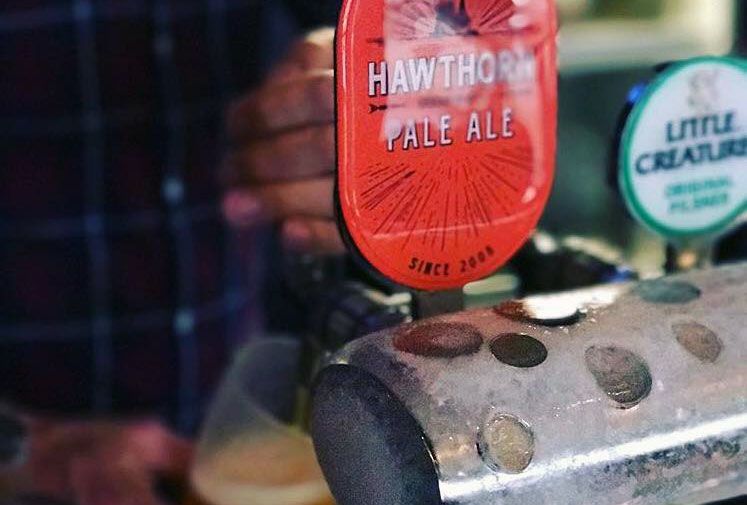
Hawthorn Brewing was the first local beer brand to be acquired by a larger entity in 2017. It was also the first brewing company bought by Dixon Hospitality, which to that point had focused on building a portfolio of venues across Australia, including the Beer DeLuxe group and other high profile venues such as Cargo in Sydney, The Aviary in Perth and The Crafty Squire in Melbourne.
Since then, the owners of Dixon Hospitality sold a controlling stake in the business to KKR, a vast global investment firm with interests in a diverse array of businesses, which saw the company become the Australian Venue Company (AVC). Brian Hardie, who has worked for a number of brewing companies over the years, including BrewDog and Kooinda, joined Hawthorn last year.
He says that any profits from the business "stay right here in Australia" adding: "They are reinvested in buying more pubs for our parent company, which pour hundreds of kegs from small, independent brewers in Australia each year already. They will be used to fund a brewery for ourselves in the not too distant future [so] although we are overall owned by a private equity company, our profits stay on these shores."
As for concerns surrounding ownership of a brewing company by a large venue group, he says that, while having Hawthorn beer in AVC venues "is just sensible business" he "would challenge anyone to say that any of our beer-centric venues do not do their best to showcase a broad selection of beers from local, national and international small brewers.
"We have Hopscotch that each month champions a local brewer. Every Beer DeLuxe venue pours some of the best collaboration beers around, with amazing selections and rotations. We have good beer at Terminal 2 in Sydney Airport now, again via a Beer DeLuxe with the same buying ethos and passion for beer that every other Beer DeLuxe has."
Do you believe your ability to innovate will be reduced over time now you are part of a far larger entity?
BRIAN HARDIE: Far from it. Hawthorn is not owned by a multinational brewer first and foremost. So we are in a different position to most of the other breweries mentioned in the previous article. AVC want Hawthorn to grow and, at the same time, have venues that crave great beer. As a result, I am given full control and freedom with the beers we make.
Like all businesses, they have to be commercially sound, but otherwise it’s my limitations that reduce innovation, not the company. With the accessibility to a multitude of chefs, food people and suppliers, I am also exposed to a great deal of ideas, creativity and doors that would not be open if we were not part of AVC.
History never repeats but it rhymes; do you think the acquisition of small breweries by a handful of larger businesses could see the country return to a situation similar to that before the current craft beer revolution?
BH: Never. The market will never go back to the way it was. Just like with food and wine, we have more information and more knowledge than ever before so I don’t believe consumers would allow a return to just bland macro-lager. We will always seek out new flavours and products as curious humans. Bars pouring a wide selection of beers from different brewers, and bottleshops alike, are offering greater choice than ever before.
I am also lucky enough to have worked with a brewery that was born out of a collaboration between one of the UK’s largest brewers and the second largest Scottish “craft” brewer, called Drygate. I learned there that Big Beer are learning not to mess with a winning formula. It’s about increasing their ability to grow in a declining market. C&C put up the money, but left all the creative and brewing to the craft section of the ownership. They opened up the sales channels and the beer spoke for itself.
Similarly, I don’t feel that Goat, Feral, Pirate Life and, I can say for sure, Hawthorn’s beers have changed since new ownership. Although they are evolving since I have started.
What do you say to the suggestion the brewing company the founders built is now "no different to brands like Asahi, Peroni, Victoria Bitter, Corona, Mount Franklin or Coca-Cola"?
BH: I would suggest asking the founders. I guarantee Hamish, Darren and Pete, who started Hawthorn, are still passionate about their company and the beer produced under that name. Same with Dave, Brendan, Jack and Red and everyone else who has sold their brewery in the last few years.
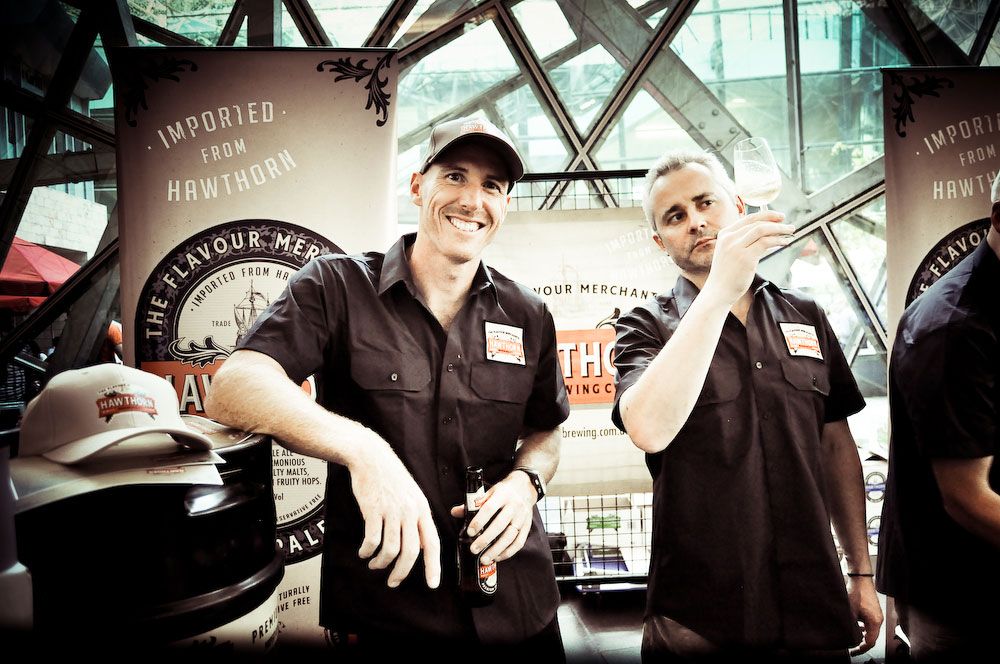
I can only speak for Hawthorn and tell you that the people running this company, and the owners of it, are passionate about beer, and are not in the market to make the cheapest beer they can. I will make the best I can and aim to contribute to the community; I have no interest in developing an average brand.
If we are like those brands, given our structure, then where do other breweries that have private equity money, or a venue group owning them, sit?
Are you confident you will be able to control the future direction of the business/brand?
BH: One hundred percent. I am employed to be in control of Hawthorn Brewing Company. All future branding, brewing and beer decisions come from me and my team. Although part of a larger company, we retain a lot of independence within the company.
I am lucky to have resources at my disposal that in previous roles I could only have dreamt of. With all respect to the amazing work Darren, Pete and Hamish put in to this point, I am able to focus on taking Hawthorn Brewing Co further and on a path not yet trodden by the company.
Should independent brewery owners steer clear of claiming they'll never sell? Doesn't everyone have a price?
BH: I believe they should, as it’s not always just a financial price to be considered. Every business owner needs an exit strategy, or at least a succession plan, and sometimes you can only take a business so far on your own. All of this has to be taken into account. It’s all personal to them, though, and I respect people who do and people who don’t mention it.
Should ultimate ownership of a beer/brand be made clear on all packaging/labels?
BH: I believe it should show the location of where that beer was brewed, although this adds a real cost for the smallest contract brewers. Maybe it's best when you get above, say, 1,000 hectolitres a year or some level of revenue cap that allows the smallest of start-ups to get going without having to get new label plates made up every time they change production venue.
I would much rather see best before/packaged on dates and gyle numbers. These are important to me as a consumer and brewer, more than having the ownership on the label. We champion, as an industry, fresh is best and drinking hop forward beers fresh, but so many of us fail to put the most basic of date coding on our beers. I hold my hands up that I was guilty in the past of this, as many others are, but it’s a real measure that can vastly improve our quality and customers' experience.
Should the discussion around ownership include brewing companies part, majority or solely owned by wealthy investors or investment funds, or those with shared owners in other areas of the beer industry?
BH: We are owned by a hospitality group, backed by private equity. There are other breweries that are owned by one or both of those entities as well, some very well known international and national ones as well.
I think the risk with this approach is what individuals define as suitable, and who gets to decide if that owner is OK, whereas this owner is terrible? We are fighting amongst ourselves to define so many things like “craft”or suitable “ownership” when, as an industry, we should be looking to educate the consumer, growing the overall market, banding together to tell the story of good beer (through the IBA), sharing info and creating a rising tide of interest for small brewers to flourish.
Do we penalise successful people for then entering into the brewing game? Some of the most well regarded “craft brewers” in the world were started with loans from parents years ago of many hundreds of thousands of dollars. Do we reassess our rules to no longer support these guys simply because they came from wealthy families? If talking about wealthy investors, then do we need some definition of wealthy? Building a brewery is not cheap regardless of how small you start. It’s all relative and capital intense.
Above all, having honesty and integrity is more important in getting your story across than ownership in my view. Great beer in the container is the single most important factor in my eyes. Knowing Feral is owned by CCA doesn’t deter me from buying it based on their history and my experience with their beers.
Do we risk a situation where to be successful is a negative, and that every brewery has to produce a full organisational chart to show its true independent status? Private Equity always comes with payback. But, in our situation, there is no one gutting our recipes or telling me that $X is too high to spend on hops or barley. I will make the beers I want to put my name to, and that is what will achieve the ROI our backers want, not lowest denomination beer.
Do you think drinkers care who owns the beer in their glass?
BH: Of course some people do. But, if we are talking about overall beer drinkers, then at least 95 percent of them don’t. Even then, some people swearing off Pirate Life, Goose Island or Mountain Goat are more than happy to buy the latest Rare Breed, the next Pirate Life IPA or line up for Bourbon County Stout at their local independent bottleshop.
It’s all relative, and my point is that, if it's damn good beer, then why not buy it?
Chris Illman – Bickford's Group
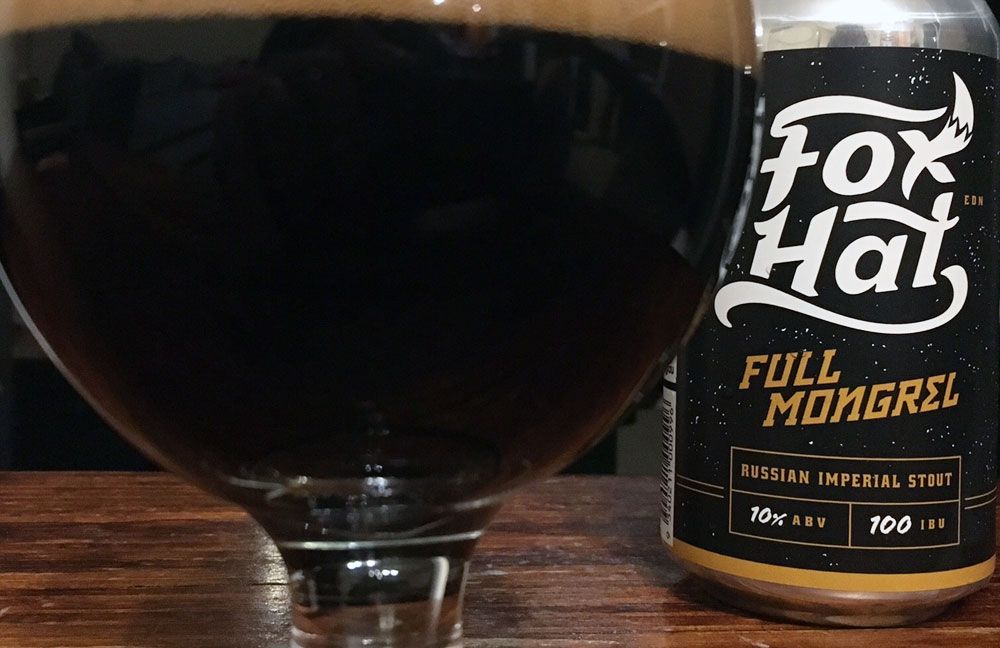
The acquisition of the Vale Brewing business by Bickford's, a sale that included the Fox Hat and Dr Pilkington's brands, was a little lost in the noise of Feral's sale to Coca-Cola Amatil on the same day. While it involved the sale of a small brewing company to a far larger business, it was somewhat different to those above, with both sides of the transaction South Australian family-owned businesses.
The Bickford’s Group is an independently owned collection of companies based in Adelaide that dates back to 1839, and is best known for its soft drinks. In 2002, the business established Vok Beverages as an independently owned and operated alcohol company that now has a portfolio covering beer, wine, cider, spirits and RTDs. Today, you'll find Bickford's brands in more than 30 countries.
Chris Illman is the group sales and marketing director and answered the questions that arose from Ownership Revisited that are relevant to the acquisition of Vale.
Do you believe the brands' ability to innovate will be reduced over time now they are part of a far larger entity?
CHRIS ILLMAN: The Bickford's Group of Companies is widely recognised as an entrepreneurial company that regularly innovates in all categories we participate in. In saying that, we recognised that innovating in the craft beer category is about speed to market, small runs of packaged and/or kegs for priority sales channels and the more unique idea, the more buzz and engagement you have with the craft beer consumer.
To this end, we have brewed a Strawberry Wheat Ale under the Fox Hat trademark in collaboration with Beerenberg Farms in Hahndorf and an Iced Coffee Porter under the Vale trademark in conjunction with Bickford's as the maker of the original Iced Coffee syrup, [that were] launched at GABS 2018. Our commitment to new product development is part of our focused growth strategy for these beer trademarks and, as such, we already have over 20 innovations planned to roll out on Vale, Fox Hat and/or Hobo that will be validated and commercialised over time.
History never repeats but it rhymes; do you think the acquisition of small breweries by a handful of larger businesses could see the country return to a situation similar to that before the current craft beer revolution?
CM: I don’t think a small group of businesses, in the current climate, will be able to dominate the ownership of craft beer brands as barriers to entry are low in the category, which encourages new start-ups in the industry, the craft beer consumer continues to seek out regional and local brands that tell a great story and, finally, not all craft beer brands are scalable within a larger organisation.
What do you say to the suggestion the brewing company the original owners of Vale built is now "no different to brands like Asahi, Peroni, Victoria Bitter, Corona, Mount Franklin or Coca-Cola"?
CM: The Bickfords Group of Companies is an independently owned, South Australian based business. As such, the decisions we make today are based upon building sustainable and successful brands for future generations to enjoy.
Ultimately, our ambition for the Vale brewing brands closely aligned with the group that began Vale brewing nine years ago, hence the synergies in the purchase and the consistencies going forward in our strategies and tactics.
Should ultimate ownership of a beer/brand be made clear on all packaging/labels?
CM: I believe ownership information portrayed on packaging should be left to the brand owner as mandating these details will only add to more internal complexity, risk and compliance. The craft beer consumer, if interested, will search out ownership details within a matter of seconds anyway.
However, simple and effective communication that highlights independence like the IBA’s seal of independence is a great initiative that brewers can choose to use at their own discretion.
Do you think drinkers care who owns the beer in their glass?
CM: You only have to read blogs and social media comments to know that brand ownership is an emotive topic not only in craft beer but the liquor category in general. I personally believe in transparency of ownership which I believe will be improved the IBA’s seal of independence.
Head here to view our Who Owns Your Beer infographic.





